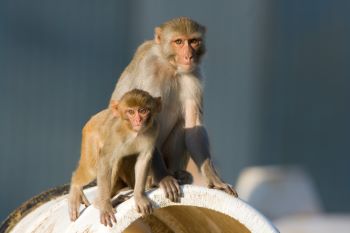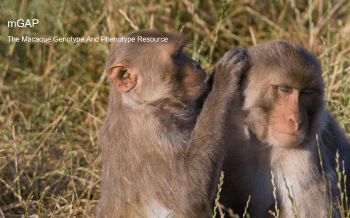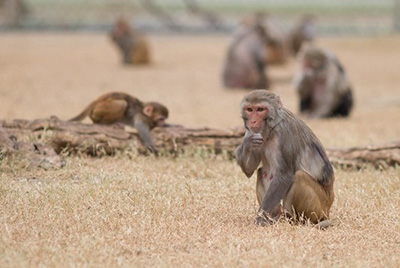Caribbean Primate Research Center
Grant Number: P40OD012217

Research Emphasis/Objectives
The Caribbean Primate Research Center’s mission is to increase our scientific understanding of primate biology and behavior and undertake humane research that improves human health and welfare. In this regard, CPRC is committed to (a) providing the national and international scientific community with Indian-origin rhesus macaques with known background and of the same genetic pool, (b) providing a scientific scenario for studies of numerous diseases that afflict human health, and (c) conducting multidisciplinary collaborative studies on the life cycle of rhesus macaques as a biological model for humans.
Services Provided
We provide the following services and data to our investigators and partner researchers:
Demographic data: The demographic database of Cayo Santiago Field Station is based on daily visual census and includes over 60 years of data and over 11,000 rhesus monkeys. Data include ID, date of birth, date of death, social group, inter-group migration, and maternity.
Genetic data: The genetic database of the CPRC based on short tandem repeats (STRs) includes over 5,000 rhesus monkeys. Data are used for paternity and maternal confirmation.
Skeleton collection: The collection consists of over 3,300 rhesus monkey skeletons (2,634 skeletons with known ID and life history). The Laboratory of Primate Morphology also offers skeletons of other 12 primate species, including patas, squirrel, pigtail, vervet, stump-tail, and tufted capuchin monkeys.
Molecular biology tools: The Virology Laboratory offers a set of molecular biology and bench services and tools for handling and processing samples, including real-time PCR, molecular cloning, SDS-PAGE, Western Blot, ELISA, PBMC's isolation and culture, cell proliferation, multiplex platform for cytokine detection by Luminex technology, RNA extraction, IFA experiments, and immunophenotyping and dendritic cells determination.
Immunology Core (IC): The IC is integrated into the Virology Laboratory. The IC acts as a service unit to other investigators conducting research projects at CPRC. The IC provides services in the areas of immunological assays using a state-of-the-art Bio-Plex MAGPIX, which integrates Luminex XMAP technology (Bio-Rad, Hercules, CA), and flow cytometry through the acquisition of an Attune Acoustic FACS (Life Technologies, Thermo Fisher Scientific, Waltham, MA) for cell phenotyping.
Contact Information
Caribbean Primate Research Center
Road 867 / Bo. Ingenio
In front of "Finca Ingenio"
Toa Baja, PR 00949
cprc.rcm.upr.edu
Co-Principal Investigators
PI: Dr. Carlos A. Sariol
Phone: 787-758-2525 x5112, x1189
Fax: 787-767-1442
carlos.sariol1@upr.edu
Other/Resource Contacts
PI: Dr. Melween I. Martinez
Phone: 787-756-6540 (Animal Resources Center)
Phone: 787-474-0593 (CPRC)
Fax: 787-758-2452
melween.martinez@upr.edu
- Read more about Caribbean Primate Research Center
Log in to post comments






 Research Emphasis/Objectives
Research Emphasis/Objectives
